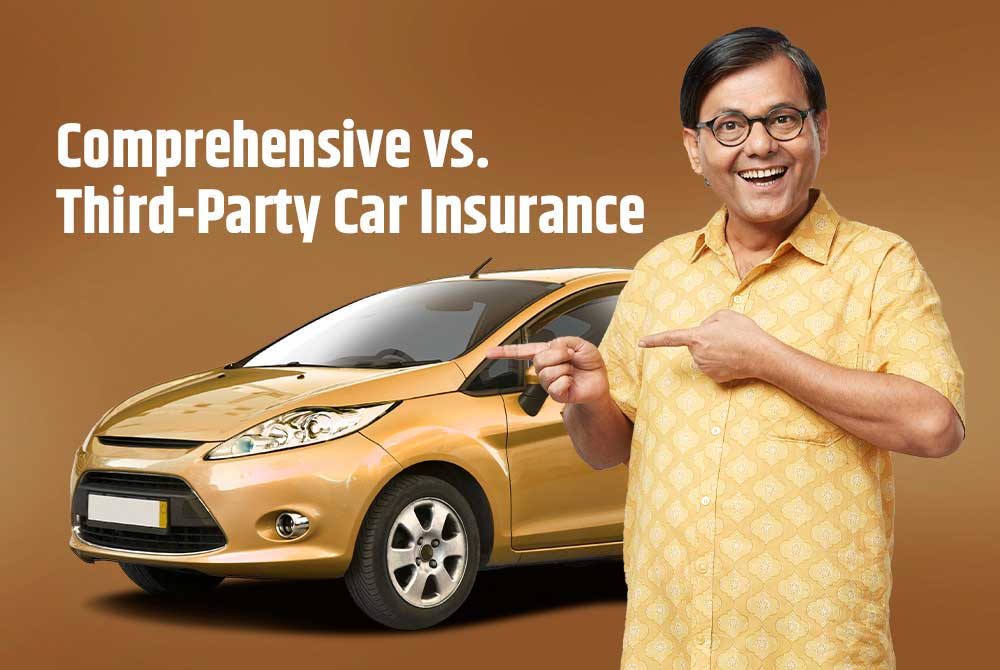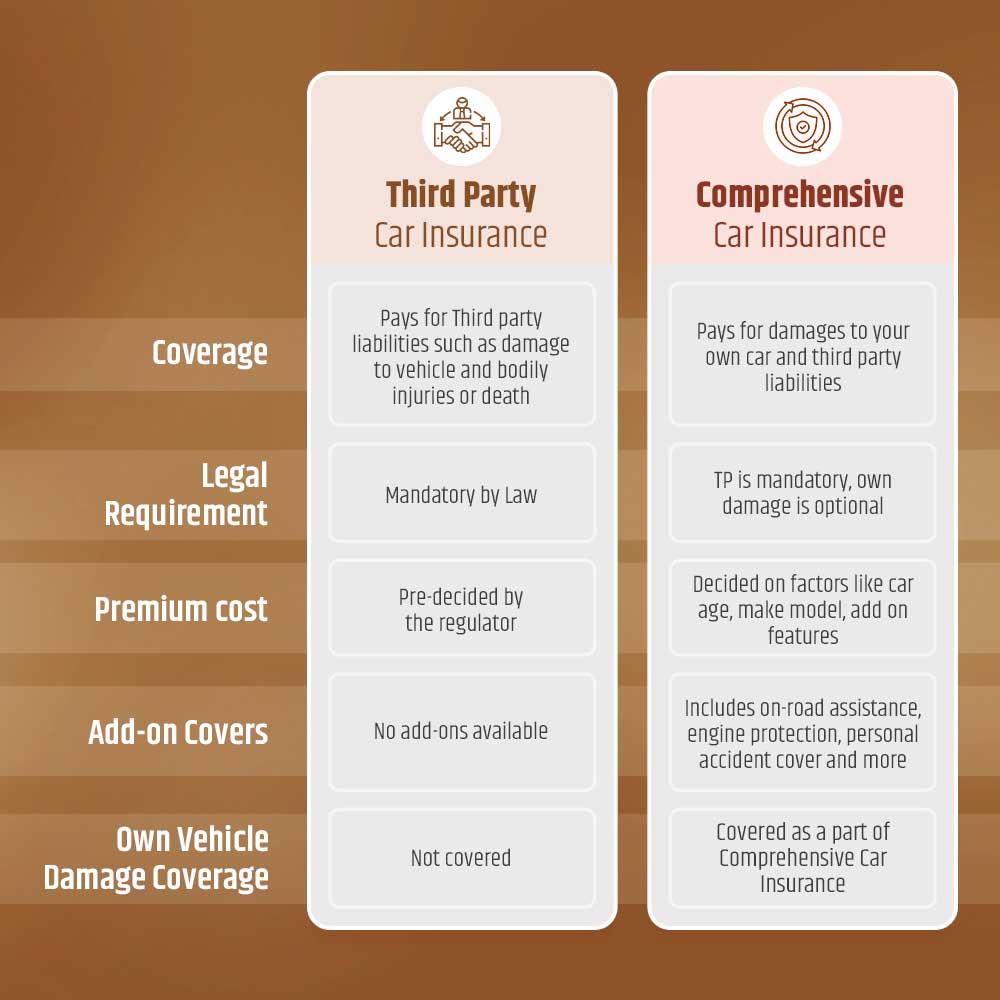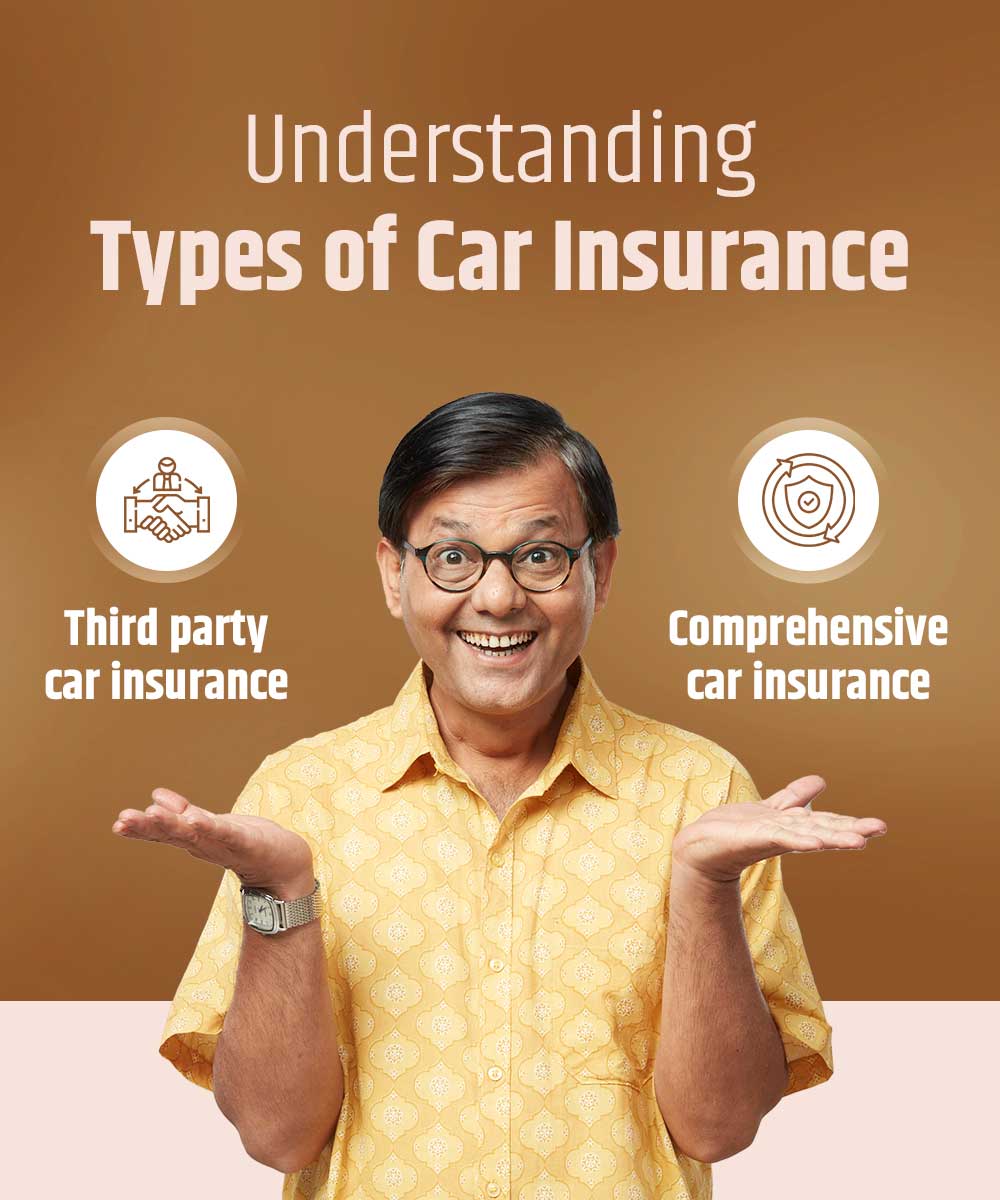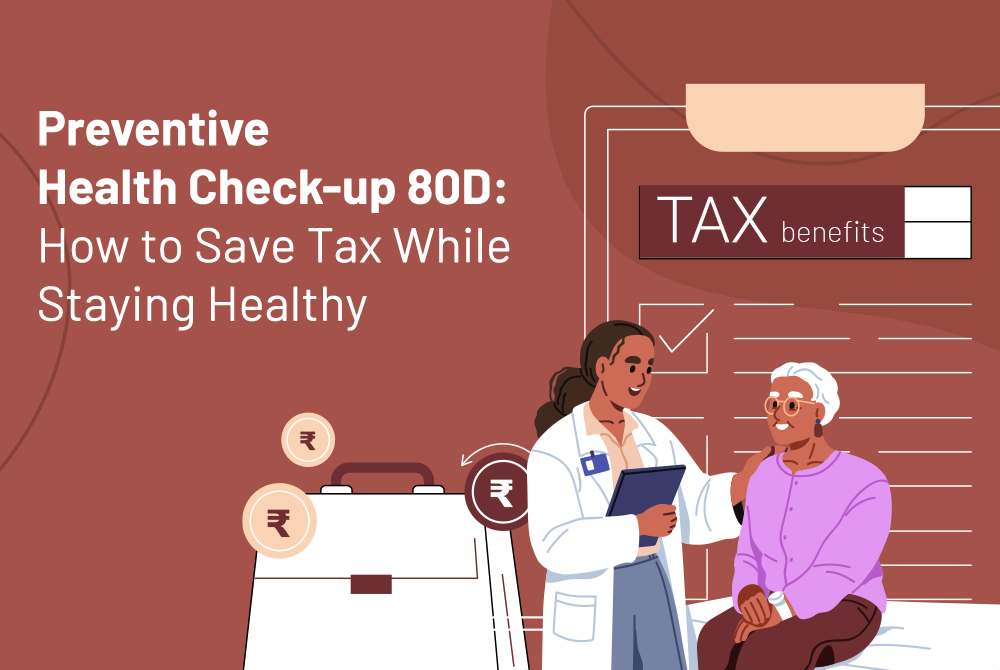July 28, 2025
7 min read
Comprehensive vs. Third-Party Car Insurance: What Should You Choose?
Written by: Team Achha Kiya Insurance Liya

Summary
Comprehensive car insurance and third party car insurance are the two most commonly purchased policies in India. While third party insurance is mandatory for all vehicles being driven on Indian roads, comprehensive insurance can be bought based on the owner’s requirements. Third party insurance only covers damages caused to others, while comprehensive insurance protects both, the owner and the third party. When choosing which one suits you the best, consider essential factors such as vehicle life, usage, place of residence etc.
Table of Contents
Understanding Types of Car Insurance
What is 3rd Party Car Insurance?
Third party car insurance is a car insurance policy that is mandatory by law in India according to the Motor Vehicles Act. If not insured, the owners can be fined or punished with license cancellation. “Third party” means any person other than the owner of the policy and the insurance company.
This type of motor insurance, which is also referred to as “act-only policy” provides financial assistance to the third party vehicle or person but not the insured. This means that if you are involved in an accident, only the damages, losses and injuries caused to the third party will be covered.
What does it include?
- Covers damages caused to third party by the driver-owner.
- Offers compensation for the repair costs for the third party vehicle.
- Compensates for injuries occured to the third party person.
What does it exclude?
- Collision caused by a driver under any influence.
- Driver is underaged or has an invalid driver’s license.
- Vehicle is used for any illegal activities.
What is Comprehensive Car Insurance?
Comprehensive car insurance policy is a type of motor insurance which provides financial protection to policyholders and third parties involved in collisions, fire, and other emergencies. It is optional and depends on the owner’s requirements to purchase this policy. However, since it provides full protection and a sense of complete peace of mind, it is highly recommended.
What does it include?
- Third-party liabilities, like vehicle damages, losses and bodily injuries like losing sight, limb or any disabilities.
- Damage to the insured vehicle due to natural disasters like flood, storm, earthquakes, fire etc.
- Covers damages to the vehicle caused by collisions.
- Medical expenses of the policyholder/driver in case of injury.
What does Comprehensive Car Insurance exclude?
- General wear and tear as well as car depreciation.
- Car breakdowns including both mechanical and electrical.
- Any damage to the car due to unlicensed or unauthorised driving.
- Damages caused to the vehicle when the driver is intoxicated.
- When the vehicle is used for illegal acts.
Add-ons Under Comprehensive Car Insurance
- Zero depreciation cover.
- Car consumables cover things such as cost of grease, AC gas, engine oil, filter oil etc.
- On-road and road side assistance.
- Engine protection cover.
- Passenger assistance cover.
- Key loss and tyre damage covers.
Key Differences Between Comprehensive and Third Party Car Insurance
| Feature | Third Party Car Insurance | Comprehensive Car Insurance |
|---|---|---|
| Coverage | Pays for Third party liabilities such as damage to vehicle and bodily injuries or death. | Pays for damages to your own car as well as third party liabilities. |
| Legal Requirement | Mandatory by Law | Not mandatory |
| Premium cost | Fixed by IRDAI | Based on factors like car age, make model, add on features. |
| Add-on Covers | No add-ons available | Includes on-road assistance, engine protection, personal accident cover, and more. |
| Own Vehicle Damage Coverage | Not covered | Covered as a part of Comprehensive Car Insurance |

Pros and Cons
Third Party Car Insurance
Pros:
- Cost-effective: Lower premiums in comparison to comprehensive cover.
- Legal compliance: Meets the mandatory insurance requirement.
- Protects others: Ensures you are covered for damages caused to another person, property or vehicle.
Cons:
- Limited coverage: Does not cover the cost of the repairs of the insured vehicle.
- No natural calamity coverage: If any damage is caused to your vehicle due to a natural calamity like hailstorms, floods, fire etc. this policy will not cover the damages.
- No personal accident coverage: In an event of accident, this insurance policy will only provide financial support to the third party injuries.
- No add-ons: This policy does not provide any flexibility for additional protection.
Comprehensive Car Insurance
Pros:
- Extensive coverage for your car: Compensates for any damage to the vehicle in case of road accidents, fire related incidents, natural calamities and theft.
- Personal accident cover: In case of any injuries to the driver-owner, disability or death of the driver etc. the insurer compensates the policyholder or the nominee.
- Covers Third Party Liability: Covers the cost of repairs as well as the medical expenses of any injury or death caused to the third party by the vehicle.
- Add ons available: It allows policyholders to choose additional protection
plans like on-road assistance, extended engine protection etc. - No Claim Bonus: If no claim has been raised during the term of the motor insurance policy, the insurer gets a reward. This reward is mostly a discount on the premium renewal.
Cons:
- Higher premiums: Since it provides full protection, the premiums of this policy are higher.
- Excludes some damages: Does not cover normal car wear and tear, depreciation, vehicle failures etc.
- Includes Compulsory deductibles: The policyholder must pay a fixed amount from their pocket as a part of compulsory deductible.
Which Type of Insurance is Right for You?
Third party insurance is mandatory in India. However, you should choose comprehensive car insurance based on these factors:
- Vehicle Age and Value: New and high-value cars benefit more from comprehensive coverage.
- Car Usage: The area where the car is used, high risk parking as well as frequency of car usage should also be considered in deciding if you require a comprehensive car insurance policy.
- Place of Residence: If you live in an area prone to natural calamities, theft, fire related accidents, etc. a comprehensive car insurance policy will be useful.
Comprehensive vs. Third-Party Car Insurance Cost Comparison: Premiums and Claims

- Third Party Insurance: Premiums are predetermined by the Insurance Regulatory and Development Authority of India (IRDAI).
- Claim process: In case of third party damage, the incident must be immediately reported to the nearest police station and the insurance company. Additionally, if you are the victim, obtain the insurance details of the vehicle and contact the insurance company for reimbursment.
- Comprehensive Insurance: Premiums are based on factors like vehicle age, make, model, chosen add-ons and the offerings of the Insurance Company.
- Claim process: In case of damage to your own vehicle, file an FIR and inform the Insurance Company. Wait for them to inspect the damages and submit the required documents, which include copies of driver’s license, insurance papers, registration certificate and FIR. Once the claim is approved, the reimbursement process will begin.
Conclusion
Understanding the differences between comprehensive car insurance and third-party car insurance is essential for making an informed decision for your and others’ protection. While third party insurance is legally required, comprehensive car policy can provide you advanced safety. Compare benefits, coverage and personal needs before deciding to upgrade. Make the right decision, and drive with peace of mind knowing your car is well covered.
FAQs
Comprehensive car insurance is a smarter choice. It provides protection against instances like theft, accidents, fire-related events and natural calamities. The third party cover also comes under this policy protecting the policy holder’s savings.
Yes, you can upgrade from a third-party car insurance policy to a comprehensive policy at the time of renewal.
Some of the most beneficial add-ons include:
- Personal Accident Cover
- Zero Depreciation Cover
- Engine Protection Cover
- Roadside Assistance
Yes, adding one or more add-ons to your comprehensive policy will increase your premium. However, it will also provide you additional protection in case of unpredictable situations.
Third-party car insurance is mandatory under the Motor Vehicles Act, 1988, to ensure financial protection for victims of road accidents.
IDV stands for Insured Declared Value. It states the maximum amount payable by the insurance company in case the car is damaged or stolen beyond repairs. It is not a part of third party car insurance.
Yes, it is allowed to drive in India with only a third party insurance policy as it fulfills the legal requirement. However, it is safer to drive with a comprehensive car insurance policy as it covers your own car’s damages as well.
A ‘paid driver’ in car insurance means that you will employ a person to drive your car. You can easily include them in your insurance policy by paying an additional premium which covers their liability.
No, you cannot drive another car with your comprehensive car insurance. This type of policy is applicable to the vehicle listed on the policy. However, you can drive someone else’s car with policy coverage when you purchase rental car insurance, no-owner car insurance or pay as you drive insurance.
Related Articles
Preventive Health Check-up 80D: How to Save Tax While Staying Healthy
February 9, 2026
10 min 50 sec read
What Is A Copay In Health Insurance? A Comprehensive Guide To Copay Benefits And How It Works
October 23, 2025
10 min 50 sec read
Impact of Room Rent Capping on Health Insurance Claims: What Most Policyholders Miss
September 14, 2025
4min 5sec read
National Insurance Awareness Day – 28th June
June 28, 2025
4 min 32 sec read
The Essential Guide to Types of General Insurance: Protecting What Matters Most
July 28, 2025
8 min 50 sec read
Understanding the Different Types of Health Insurance: A Comprehensive Guide
July 28, 2025
7 min 10 sec read






